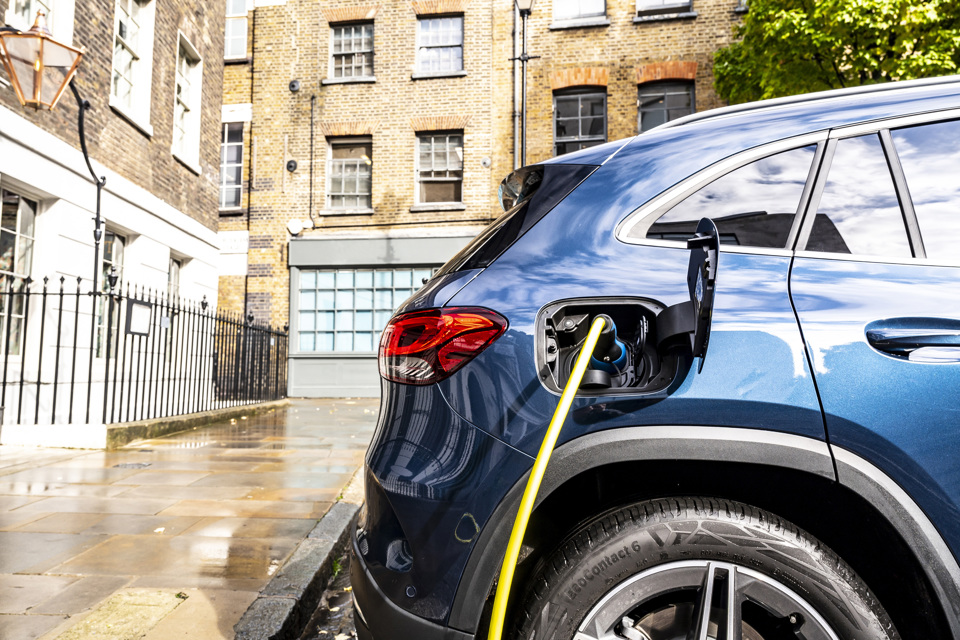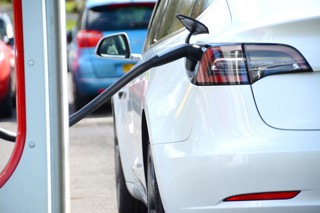Now is the “perfect time” for fleet decision-makers to reassess their fleet needs and start electrifying their vehicles.
That’s according to Matthew Walters, head of consultancy services and customer value at LeasePlan UK.
He says that Covid-19 has impacted fleet strategies in a number of ways so there’s “no better time to rethink and realign”, particularly with the 2030 ban on the sale of new petrol and diesel cars and vans two replacement cycles away.
“The fossil-fuelled vehicles that have been our preferred mode of transport for decades are on the way out,” said Walters. “The future is electric, perhaps hydrogen electric.”
Van manufacturers, for example, are looking at whether hydrogen could provide commercial fleet operators with the range and payload to successfully make the switch to electric.
Stellantis (the new parent name for the merged PSA and FCA groups), has announced it will launch three hydrogen plug-in hybrid, zero-emission vans based on the existing Citroën Dispatch, Peugeot Expert Partner and Vauxhall Vivaro.
Walters says that nine years isn’t long at all until the petrol and diesel ban comes into force. “In terms of leasing contracts, it could be just two cycles,” he said.
“That’s why it’s so important for fleet managers to proactively look ahead rather than taking a passive approach.”
He continued: “Now is the perfect time for fleet managers to reassess their fleet needs. The Covid-19 pandemic has impacted fleet strategy in a number of ways, so there’s no better time to rethink and realign.”
An important first step, according to Walters, is ensuring fleets select the right vehicles for their operations and that as many of them are electric vehicles (EVs) or plug-in hybrids (PHEVs) as possible.
“If now isn’t the right time to start your journey to electrification, think about exactly when in the next nine years might be,” he said. “Failing to prepare for this transition could leave you in the lurch further down the line.
“If the past year taught us anything, it’s to expect the unexpected, and your time and resources may be needed elsewhere at a second’s notice. So, get ahead now and plan for what you do know.”
Salary Sacrifice schemes continue to gain momentum as employers look for new ways of delivering cost effective benefits.
EV Salary Sacrifice in particular saw huge growth in 2020, after the Government announced a zero percentage benefit-in-kind (BIK) tax rate for 2020/21.
Furthermore, findings from the OC&C Speedo meter ‘Battery Late Than Never’ report, suggest a three-fold increase in drivers wanting to source their next vehicle through their employer.
However, Walters said: “The shift to EVs is so seismic that some doubt it will happen. We recently surveyed almost 2,000 fleet managers and senior managers in businesses ranging from SMEs to large companies, and as many as a third of fleet managers said that they are reluctant to prepare for the 2030 ban because they believe the deadline will be pushed back.”
The transport secretary, Grant Shapps, has revealed carmakers told him in a recent meeting that a “more realistic” target date would be 2035.
“It’s no surprise that fleet managers are feeling hesitant,” continued Walters. “2020, and now the beginning of 2021, brought unprecedented change to the fleet landscape.”
But despite that backdrop the number of alternatively fuelled car sales in the UK – which includes pure and hybrid electric vehicles – have started to outstrip the number of diesel car sales for the first time in history, explains Walters.
“The turning point was around September, when, according to the SMMT, around 60,000 new alternatively fuelled cars were sold, in comparison to just under 47,000 diesels. Plus, OEMs including Volvo, Ford, and Jaguar have committed to EV-only manufacturing, accelerating the change.
“If that doesn’t prove it, nothing will. The reality is that we’re already well and truly on the road to net zero.
“Employers and consumers are like are working together to drive the switch to EVs, which is only accelerating as time goes on. This time next year, we’ll already be in a much greener place.”























Login to comment
Comments
No comments have been made yet.